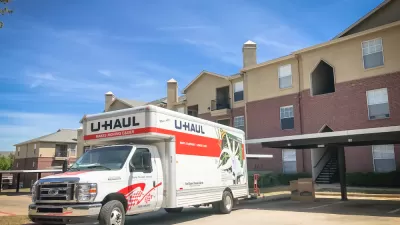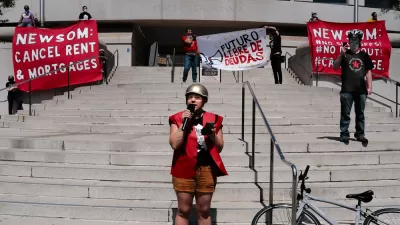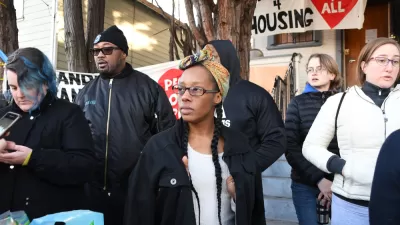Eviction moratoriums are only as good as their enforcement, as one man’s harrowing story in New Orleans shows.

In late March, just as New Orleans became one of the epicenters of the nation’s fight against the novel coronavirus, sanitation worker Bobby Parker, 56, found himself locked out of his apartment for paying his rent four days late.
As Parker walked away from his locked apartment, top New Orleans officials were begging people to stay in their homes, to help fight the pandemic. Earlier that month, the city’s Civil District Court judges had halted all residential evictions starting on March 13, a suspension that will be in place until at least April 30. And last week, after a legal-aid lawyer from Southeastern Louisiana Legal Services filed a petition on Parker’s behalf, the court’s on-duty judge ruled that Parker’s eviction had been unlawful and ordered Parker’s landlady to change the locks back to fit his key.
But Parker’s landlady, 92-year-old Bettie Salles, has refused to comply. She hung up the phone when asked about the matter, then sent a text saying: “REPORT THIS: pay the $2,395 due in cash today.”
It’s unclear how Salles reached that amount, since Parker’s monthly rent is $446 and no one is contending that he has missed any prior rent payments.
Though it’s cold comfort, Parker is not alone. While some property owners are working with tenants who can’t pay rent, says Hannah Adams of Southeastern Louisiana Legal Services’s housing unit, other landlords are “threatening eviction and using other tactics to bully tenants.” Some have refused to make necessary repairs or forced tenants to sign notes promising that they will pay all rent due once the pandemic has eased.
Frank Southall, lead organizer for the Jane Place Neighborhood Sustainability Initiative, said he’s heard much more about threatened evictions since March 31, as the first mid-pandemic rent payment is due for many tenants. “These are now becoming so common,” says Southall. “The landlord tells someone they have to leave, either because they don’t know the law, or don’t care, or are deliberately being deceitful to their tenants.”
...
FULL STORY: High-Risk, Essential, and Illegally Evicted

Study: Maui’s Plan to Convert Vacation Rentals to Long-Term Housing Could Cause Nearly $1 Billion Economic Loss
The plan would reduce visitor accommodation by 25,% resulting in 1,900 jobs lost.

North Texas Transit Leaders Tout Benefits of TOD for Growing Region
At a summit focused on transit-oriented development, policymakers discussed how North Texas’ expanded light rail system can serve as a tool for economic growth.

Why Should We Subsidize Public Transportation?
Many public transit agencies face financial stress due to rising costs, declining fare revenue, and declining subsidies. Transit advocates must provide a strong business case for increasing public transit funding.

How to Make US Trains Faster
Changes to boarding platforms and a switch to electric trains could improve U.S. passenger rail service without the added cost of high-speed rail.

Columbia’s Revitalized ‘Loop’ Is a Hub for Local Entrepreneurs
A focus on small businesses is helping a commercial corridor in Columbia, Missouri thrive.

Invasive Insect Threatens Minnesota’s Ash Forests
The Emerald Ash Borer is a rapidly spreading invasive pest threatening Minnesota’s ash trees, and homeowners are encouraged to plant diverse replacement species, avoid moving ash firewood, and monitor for signs of infestation.
Urban Design for Planners 1: Software Tools
This six-course series explores essential urban design concepts using open source software and equips planners with the tools they need to participate fully in the urban design process.
Planning for Universal Design
Learn the tools for implementing Universal Design in planning regulations.
City of Santa Clarita
Ascent Environmental
Institute for Housing and Urban Development Studies (IHS)
City of Grandview
Harvard GSD Executive Education
Toledo-Lucas County Plan Commissions
Salt Lake City
NYU Wagner Graduate School of Public Service





























